|
Nov 7, 1880
|
Born in Tichborne, Ontario to
George and Cynthia (nee Cornwell) Good
|
|
Dec 20, 1899
|
Married to Lucy Ann Brash in
Perth, Ontario
|
|
Jul 21, 1915
|
Attested into the 59th Battalion in
Kingston, Ontario
Ø Number 455008
Ø Next of kin given as Mrs. Lucy Good, wife,
Westport, Ontario
Ø Previous occupation given as Railroading
o
Later noted as
Farmer
Ø Previous military experience given as 42nd
Regiment
Ø Religion given as Church of England
Ø Posted to “A” Company
The battalion trained in the
Kingston, Ontario area
|
|
Nov 2, 1915
|
Lucy Ann Brash died in
Westport, Ontario of Typhoid Fever
|
|
Apr 1, 1916
|
Embarked the SS Olympic in
Halifax, Nova Scotia
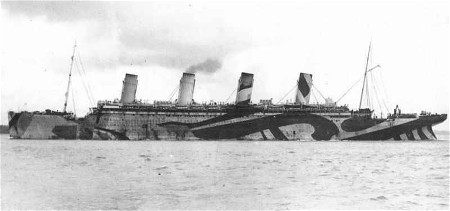
|
|
Apr 11, 1916
|
Disembarked in Liverpool,
England and proceeded to the Bordon Camp
|
|
Apr 23, 1916
|
Attached to the Field Training
School in Bramshott
|
|
Jul 6, 1916
|
Transferred to the 39th
Reserve Battalion in West Sandling
|
|
Aug 11, 1916
|
Transferred to the 21st
Battalion
|
|
Aug 12, 1916
|
Arrived at the CBD (Canadian
Base Depot) in the Rouelles Camp, Havre, France and Taken On Strength of the
21st Battalion
|
|
Aug 29, 1916
|
After leaving the base depot,
he joined the 2nd Canadian Entrenching Battalion in the Halifax,
Camp near Brandhoek, Belgium
|
|
Sep 17, 1916
|
After leaving the entrenching
battalion, Private Good joined the 21st Battalion’s rear detail
near Pozieres, France. The main part
of the battalion was in heavy action at the sugar factory and beyond into
Courcelette
|
|
Dec 11, 1916
|
Proceeded on the Lewis Machine
Gun Course
|
|
Dec 17, 1916
|
Rejoined the 21st
Battalion in the front line west of Lens, France from the machine gun course
|
|
Jan 17, 1917
|
During a large trench raid on
the German line at Calonne, France, Private Good received a slight wound to
his cheek, but remained at duty after being treated by the battalion’s
Medical Officer
|
|
Jun 5, 1917
|
Admitted to the No. 4 CFA
(Canadian Field Ambulance) with a diagnosis that reads infected toe
|
|
Jun 15, 1917
|
Transferred to the No. 6 CCS
(Casualty Clearing Station)
|
|
Jun 18, 1917
|
Invalided to England aboard
the Hospital Ship Stad Antwerpen
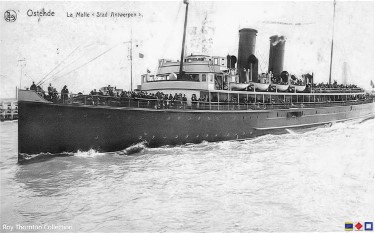
On arrival in England, he was
admitted to the 1st Eastern General Hospital in Cambridge and the
diagnosis was changed to read fractured toe
Transferred to the EORD
(Eastern Ontario Regimental Depot) for pay purposes while in hospital
|
|
Jul 12, 1917
|
The 3rd toe of his
right foot was amputated
|
|
Aug 25, 1917
|
Transferred to the Canadian
Convalescent Hospital in Woodcote Park, Epsom and the diagnosis was changed
to read ICT (Inter Connective Tissue) infection of 3rd toe, right
foot
|
|
Nov 9, 1917
|
Attached to the 3 CCD
(Canadian Command Depot) for physical training and exercise
|
|
Nov 23, 1917
|
Ceased to be attached to the
command depot on being admitted to the Canadian Convalescent Hospital in
Woodcote Park, Epsom and Rheumatism was added to the diagnosis
|
|
Dec 18, 1917
|
Transferred to the Canadian
Red Cross Hospital in Buxton and the diagnosis was changed to read Myalgia
|
|
Apr 22, 1918
|
Transferred to the No. 5
Canadian General Hospital in Kirkdale, Liverpool and the diagnosis was
changed to read Raynaud’s Disease.
This limits blood flow to the extremities and causes fingers and toes
to turn blue and feel cold
|
|
May 25, 1918
|
Embarked the Hospital Ship
Araguaya in Avonmouth
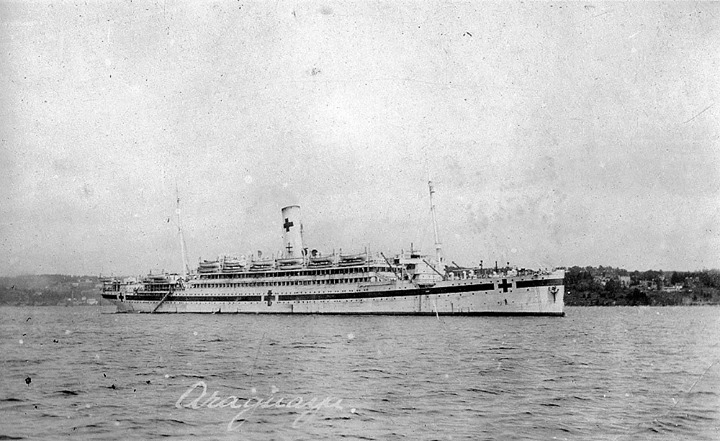
|
|
Jun 4, 1918
|
Disembarked in Halifax, Nova
Scotia and proceeded to Kingston, Ontario where he was Taken On Strength of
Military District No. 3 Casualty Company
|
|
Jun 6, 1918
|
Admitted to the Queen’s
University Military Hospital with a diagnosis that reads Raynaud’s Disease
|
|
Jun 7, 1918
|
Granted leave until June 21,
1918
|
|
Sep 4, 1918
|
Medical exam notes
Ø Man suffers from Raynaud’s
Disease
Ø Has had 3rd
toe of right foot amputated
Ø Has pain in both
legs on occasion
Ø Fingers and toes,
and sometimes his nose, turn blue when cold
Ø Fingers and toes
are numb at times
Ø Blood circulation
in both feet is poor
|
|
Sep 9, 1918
|
Discharged to duty from
hospital and posted to the Casualty Company in Kingston
|
|
Sep 13, 1918
|
Discharged from the CEF in
Kingston, Ontario
Ø Rank on discharge
Private
Ø Entitled to War
Service Badge Class “A”
Ø Proposed residence
on discharge Harrowsmith, Ontario
Following the end of the war,
the British War Medal and Victory Medals were sent to him at Harrowsmith,
Ontario
|
|
Jun 11, 1919
|
Married to Edith Fardell in
Harrowsmith, Ontario
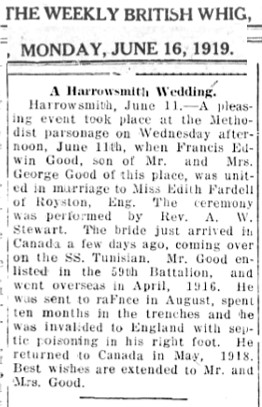
|
|
Jun 29, 1955
|
Francis Edward (Edwin) Good
died while a patient of the Kingston General Hospital and was buried in the
Harrowsmith, Ontario Cemetery
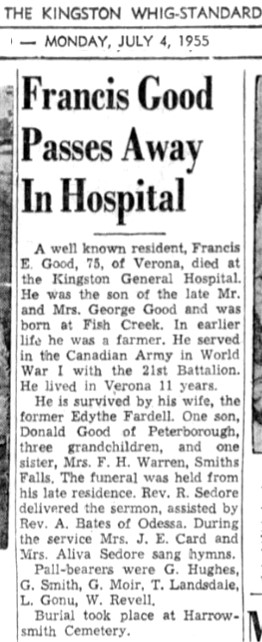
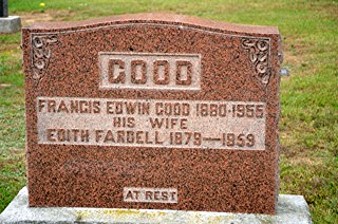
|
|